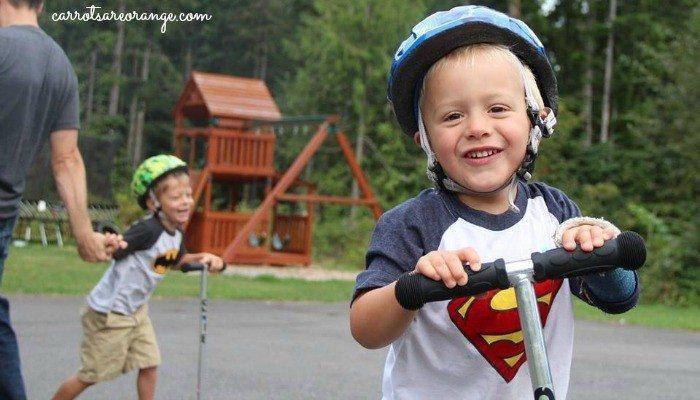
3 minute read
Communication the Montessori Way - Montessori Mag-nificence Online Magazine
Communication The Montessori Way
Struggling with how to talk to kids is a right of passage for parents and caretakers.
Advertisement
By Marnie Craycroft
Learning how to improve communication with kids is not simply about getting them to act in a certain way, it is about guiding them to be better communicators, how to live peacefully, how to be kind, and to how to effectively resolve conflict. This means knowing when to intervene, and knowing how to communicate during conflict.
Related Post: What Questions to Ask Before You Intervene
Once you’re done reading this article, you will feel more confident & more prepared to communicate with your child and to help guide your child to be a rock solid communicator.
Don’t panic. You are not alone.
This stuff is hard.
Toddler and preschooler communication is challenging for any adult. So, I thought I would share tips on improving communication with young children that I’ve gathered over the years as a parent ad educator.
Did you know that toddlers and preschoolers can solve their own problems? Yes, it is true!
“It is the child who makes the man, and no man exists who was not made by the child he once was.” ~ Dr. Maria Montessori
With the help and guidance of us grown-ups, who often are too quick to offer solutions without giving children the opportunity to come up with a solution on their own, children just might be able to do it.
They just might surprise us.
The best part is that they can develop important life skills of problem solving and decision making. Not to mention, they will feel capable and independent. Check out my book lists for children for ideas on how to help children develop key social and emotional skills.

During my training, I attended a wonderful Montessori presentation by a Virginia Varga. She pioneered the development of a Montessori Infant & Toddler curriculum in the 60s. Her experience with children, particularly toddlers, is extensive, to say the least. She passed some of her knowledge onto those of us lucky enough to be in her audience.
In short, she was pretty awesome. I was fascinated with her.
She emphasized that toddlers are in their prime developing a sense of identity and that, by 2 years old, the basic structure of personality is already formed in these little spirits. That is not to say that personality can’t change to some extent but the basic foundation already exists in form. Even at birth, temperament is deeply embedded in who we all are. I loved it when Virginia said, emphasizing Maria Montessori herself, “already at 3, the child is a little man”. I could not help but giggle a bit thinking of my own children and all their “personality”.
One theme in her Montessori presentation was how parents and educators are too quick to problem solve for children, that we are given many opportunities to guide them to make decisions on their own but we choose to offer solutions instead of asking questions.
Conflict resolution is a life skill. Helping children understand and process their emotions, and then manage them is a life skill. I am guilty. I am betting I am not alone in this boat.
I got so much out of her talk that I had to share some of the specific communication tactics with you.

10 Ways to Absolutely Improve Toddler Communication
Acknowledge and identify feelings: “I notice that you are mad. Is that because Ben took the truck away from you?” • Let’s the child know that his feelings have been heard by us. Recognizing and responding to needs and wants expressed through feelings changes a child’s behavior.
Interpret the experience: “It looks like you both want the truck” • Let’s the child know that someone understands him, instead of saying “Your brother wants the truck”, offer an interpretation.
Report the observation: “You would like the truck but Ben took it from you” • Let’s the child process the situation

Repeat the “complaint” –“You said the bike is not working” • Along the same lines as the above two, repeating the complaint not only makes the child feel heard, it also gives adult time to think about next steps.
Ask questions –“How is it broken?” “Why won’t it go?” What would like to happen now?” • Asking a question stimulates thinking and reduces stress to the brain allowing for (better) problem solving and decision making. Don’t immediately suggest an option to solve the problem. Allow the child(ren) time to think about how to solve the problem offer solutions and feel capable.



